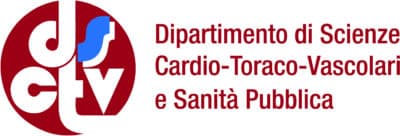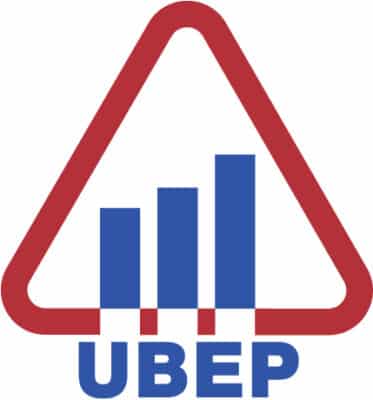

The Master’s Degree in Advanced biostatistics for medical research, promoted by the Unit of Biostatistics, Epidemiology, Public Healthcare of the Department of Cardiac-Thoracic-Vascular Studies and Public Healthcare of the University of Padua, prepares professional statistic figures with high skills of identifying, drawing and analysing medical studies.
The Master’s Degree is aimed at exploring advanced topics in statistics for medical research. These topics are relevant for the pharmaceutical industry and CRO (Contract Research Organizations). The Master’s is addressed to internal personnel who can update professionally, or new levers that aim at specializing in this new sector.
It is a second level short specialisation course in on-line and on-demand mode.
The training activities of the Master’s Degree in Advanced Biostatistics for Medical Research is organized in five modules, covering topics such as:
- Cost analysis in medical trials and in observational studies;
- Bayesian drawings for pharmacological testing and devices;
- Meta-analysis networks;
- Basket, umbrella and platform trials;
- Statistical methods to analyse complex outcomes.
The training project is aimed at exploring advanced topics in statistics for medical research.
The Master’s Degree in Advanced Biostatistics for Medical Research provides technical and scientific training for professional statistics figures with high skills in identifying, designing and analysing clinical studies with innovative, non-standard methods. Moreover, one of the specific figures is that of the biostatistician who works or wants to work in the public or private pharmacological research field.
The topics covered are relevant for the pharmaceutical industry and CRO (Contract Research Organizations), which need to develop internal competencies or acquire personnel trained on them. The Master’s Degree bridges this gap, by promoting a statistical preparation closer to the needs of companies and to new emerging methodologies.
The Master’s Degree in Advanced Biostatistics for Medical Research provides training on:
Module 1: MISSING DATA AND ESTIMATIONS
Preserving the analysis’ initial randomization is important to prevent preconceptions and provide a solid base for statistical testing.
Module 2: BAYESIAN DRAWINGS FOR PHARMACOLOGICAL TESTING AND DEVICES
Experimental Bayesian drawings can incorporate historical data or information from published literature, thus saving time and costs and minimizing the number of subjects exposed to lesser treatment. Moreover, they can adapt to unexpected protocol changes and allow researchers to explore the plausibility of the different results, before patients are enrolled in the study.
Module 3: META-ANALYSIS NETWORKS
Where there is the need to compare three or more treatments for the same clinical indication, meta-analysis networks offer the important advantage of summarizing all the evidence available in a single analysis, thus allowing to better construe these multiple comparison situations, which have become very frequent in the last years.
Module 4: BASKET, UMBRELLA AND PLATFORM TRIALS
Basket, umbrella and platform trials are innovative plans that allow exploring multiple hypotheses, such as, for instance, the effectiveness of a target treatment in different diseases (basket trials), or different target treatments in a population divided into subgroups, based on biomarkers (umbrella trials), or that investigate multiple treatments simultaneously, with the option of adding/removing study arms (platform trials).
Those plans have greater efficiency and an ethical approach in evaluating their effectiveness.
However, despite the numerous advantages, these plans are not very widespread. This course will go over the more appropriate statistical methods to plan and analyse these innovative trials.
Module 5: STATISTICAL METHODS TO ANALYSE COMPLEX OUTCOMES
Complex outcomes, such as composite endpoints, patient-reported outcomes, functional outcomes, and life quality related to health, require advanced statistical methods, due to their multi-dimensional nature. In this course, participants will learn how to use the best statistical methods to manage multivaried data, incorporate longitudinal or reiterated measurements, and obtained normal inferences when analysing complex outcomes.
The second level Master’s Degree in Advanced biostatistics for medical research is issued online, so that it can be followed also by full-time workers; it is issued on demand through UniPD multimedia Moodle platform, and video-lessons are available 24/7. It has been designed for students and professionals who want to combine other professions and activities with the need to qualify or further specialize.
Lessons will start in November 2025, and the course will last one year.
There will be a frequent and easy interaction between students and professors, through Moodle’s Forum.
The Master is divided into several 4-week modules, between November and May. At the end of each module, attendees will have the time to rewatch the video-lessons, followed by on-demand homework to test the competencies acquired. The project work to discuss the final exam will be drafted between June and July, and it may include cases that specifically interest the student, as agreed with the tutor. The work – prepared during the summer – will be the basis for the diploma-awarding discussion in September, on the Zoom platform.
For more information on the Directors and Professors, and for useful insights on the Master’s Degree in Advanced biostatistics for medical research, here’s the presentation video: Advanced Biostatistics for Medical Research | Department of Cardiothoracic-Vascular Sciences and Public Healthcare | University of Padua (unipd.it)
The general ranking of merit for the academic year 2025/26 will be published on the Italian page of this Master according to the timing provided in the Call.
Information
FAQ
The selection for admission is based on qualifications only. The procedures are described in the Master’s application notice that you can find on the University of Padua website.
1) There is no registration fee for students with disabilities, who have a disability with invalidity between 66% and 100% or with certification pursuant to law no. 104, who will therefore only pay the pre-enrolment fee, insurance and stamp duties
2) PA110 e lode: Public Administration employees who enroll in our master’s degree enjoy a discount of 330 euros on the contribution of the second installment
3) There is the possibility of supernumerary enrolment for University staff in order to allow continuous and permanent updating. The enrolment fee for the technical and administrative staff of the University is parameterised to the minimum enrolment fee set out in art. 24, paragraph 1 of these Regulations, and is equal to 20% of the quota. In the event that the technical and administrative staff of the University is in possession of the requirements for admission to the Course, once the course is completed, he/she will be able to obtain the relevant Diploma or Certificate; If they do not meet the admission requirements, they may be admitted as an auditor and obtain a certificate of participation
4) The registration fee for listeners is equal to 50% of the course registration fee
Attendance is mandatory, even if the course is held online. A maximum absence threshold of 30% is allowed. However, since video-lessons are pre-recorded, they can be watched at any time, and it is therefore easy to catch up with the study plan. The course administrative office and the professors are available to help students in case of onerous engagements of periods of intense work.

